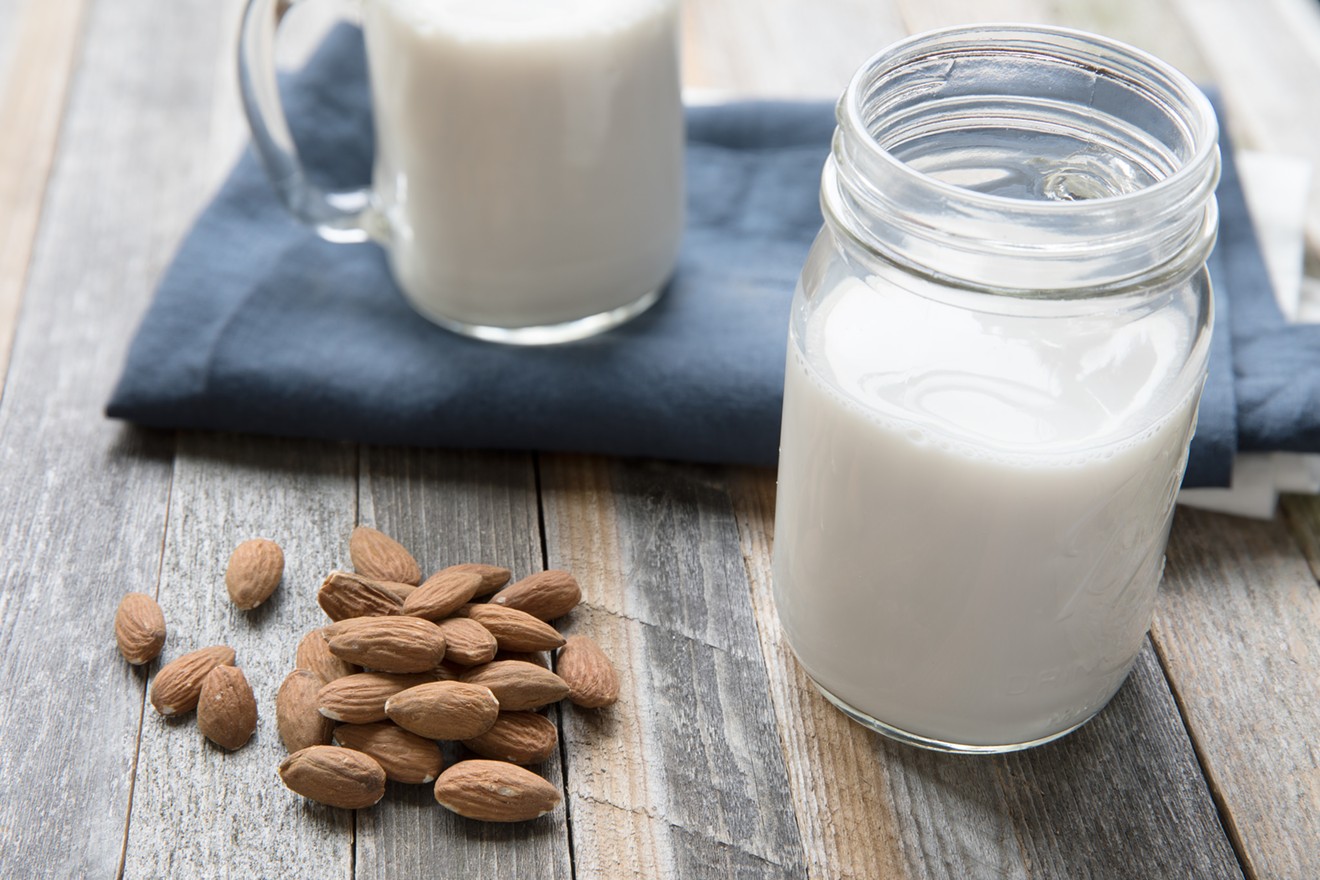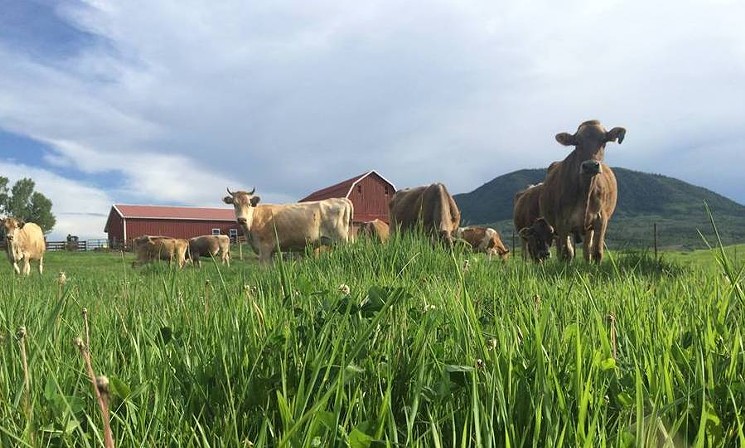The Food and Drug Administration wants your milk mustache to come from cows — and cows only. The agency has sent out signals recently that it could disallow the use of the word "milk" on packages of plant-based beverages like soy milk and almond milk, based on existing FDA "standards of identity" that define milk as a commercial food product.
During a Politico Live discussion on Tuesday, July 17, FDA Commissioner Scott Gottlieb talked about the dairy industry's dislike of phrases such as "soy milk" and addressed the agency's plan to enforce its standards of identity for milk. "This has been a little bit of a bugaboo to the dairy industry, because you see the proliferation of products like soy milk and almond milk calling themselves 'milk,'" he stated. "And if you look at our standards of identity, there's a reference somewhere...to a lactating animal — and an almond doesn't lactate."
In fact, the FDA's wording is very specific on the topic. "Milk is the lacteal secretion, practically free from colostrum, obtained by the complete milking of one or more healthy cows," the standard reads. The entire definition is about a page long, but nowhere does it mention nuts, seeds or other plant-based sources of milk. Then again, neither does it mention goats, buffalo, sheep or other animals that provide milk for commercially available products — a convenient oversight for the American Dairy Association, whose website, Drink-Milk.com, prominently displays a cow on its logo.
The agency's shift in position and potential enforcement of the letter of the law has some Colorado businesses worried. Less than a year ago, Jordan Marinovich launched Boulder Sun, a company that makes "sunmilk," a milk beverage derived from sunflower seeds. "We are a startup and everything is about growth and about raising capital," he explains, noting that any uncertainty about product identity and labeling makes pitching sun milk difficult.
Marinovich notes that he already has a trademark pending on the name "sunmilk," so he feels like two separate federal agencies are sending mixed signals. "It's frivolous and it's not fair to small producers," he points out. "You're pulling the rug out from under a whole established industry."
Boulder Sun is tiny in comparison to other Colorado companies, selling about fifty bottles a week to several markets in Boulder County. White Wave, a maker of both soy and almond milks, was founded in Colorado and maintains its corporate headquarters in Denver, though it's now owned by Danone, a multinational producer of dairy and non-dairy milks. Asked if the company thinks there is any confusion in the market or if the FDA's new approach is unfair, Michael Neuwirth, the senior director of external communications at Danone North America, replied: "In the United States, 'soymilk,' 'almondmilk' and 'coconutmilk' are the common and usual names for plant-based products under the current meaning of FDA regulation, and we communicate on our products with clear references. Dairy and plant-based products are clearly labeled with nutrition facts so people know what's in the products and can choose the ones that best fit their dietary needs and preferences. We do not believe further labeling standards are necessary."
If the FDA decides to change labeling standards, it won't happen overnight. The agency is holding a public hearing on July 26 to begin the discussion, and Gottlieb thinks any change could take a year or more. "I can't just do it unilaterally," he said during the Politico Live broadcast. "I have to go through a period of notice and comment to provide for the public to give input.
"Invariably we're going to get sued," he added. "Because you open a dictionary and it talks about milk coming from a lactating animal or a nut."
Gottlieb is right on that account. The word "milk" has been used for centuries to describe milky liquids derived from plants, and has been used in labeling of commercial products for decades. Dairy lobbyists may want to protect their flagging industry, which has been in steady decline for years as consumers find non-dairy alternatives — but it's not the government's job to protect or favor one industry over another.
Common sense and precedent make it clear that soy milk, coconut milk and almond milk are recognized and established products — even if the FDA commissioner finds the idea of milking an almond laughable.
[
{
"name": "Air - MediumRectangle - Inline Content - Mobile Display Size",
"component": "12017618",
"insertPoint": "2",
"requiredCountToDisplay": "2"
},{
"name": "Editor Picks",
"component": "17242653",
"insertPoint": "4",
"requiredCountToDisplay": "1"
},{
"name": "Inline Links",
"component": "18838239",
"insertPoint": "8th",
"startingPoint": 8,
"requiredCountToDisplay": "7",
"maxInsertions": 25
},{
"name": "Air - MediumRectangle - Combo - Inline Content",
"component": "17261320",
"insertPoint": "8th",
"startingPoint": 8,
"requiredCountToDisplay": "7",
"maxInsertions": 25
},{
"name": "Inline Links",
"component": "18838239",
"insertPoint": "8th",
"startingPoint": 12,
"requiredCountToDisplay": "11",
"maxInsertions": 25
},{
"name": "Air - Leaderboard Tower - Combo - Inline Content",
"component": "17261321",
"insertPoint": "8th",
"startingPoint": 12,
"requiredCountToDisplay": "11",
"maxInsertions": 25
}
]













